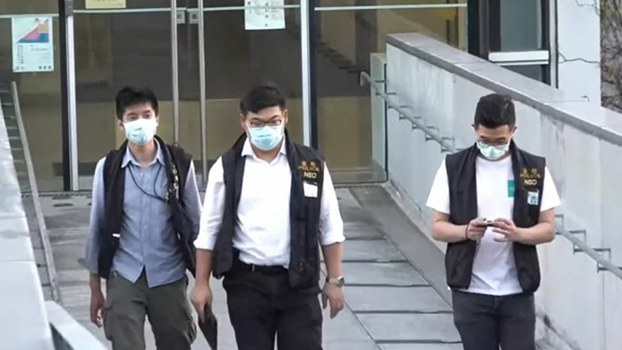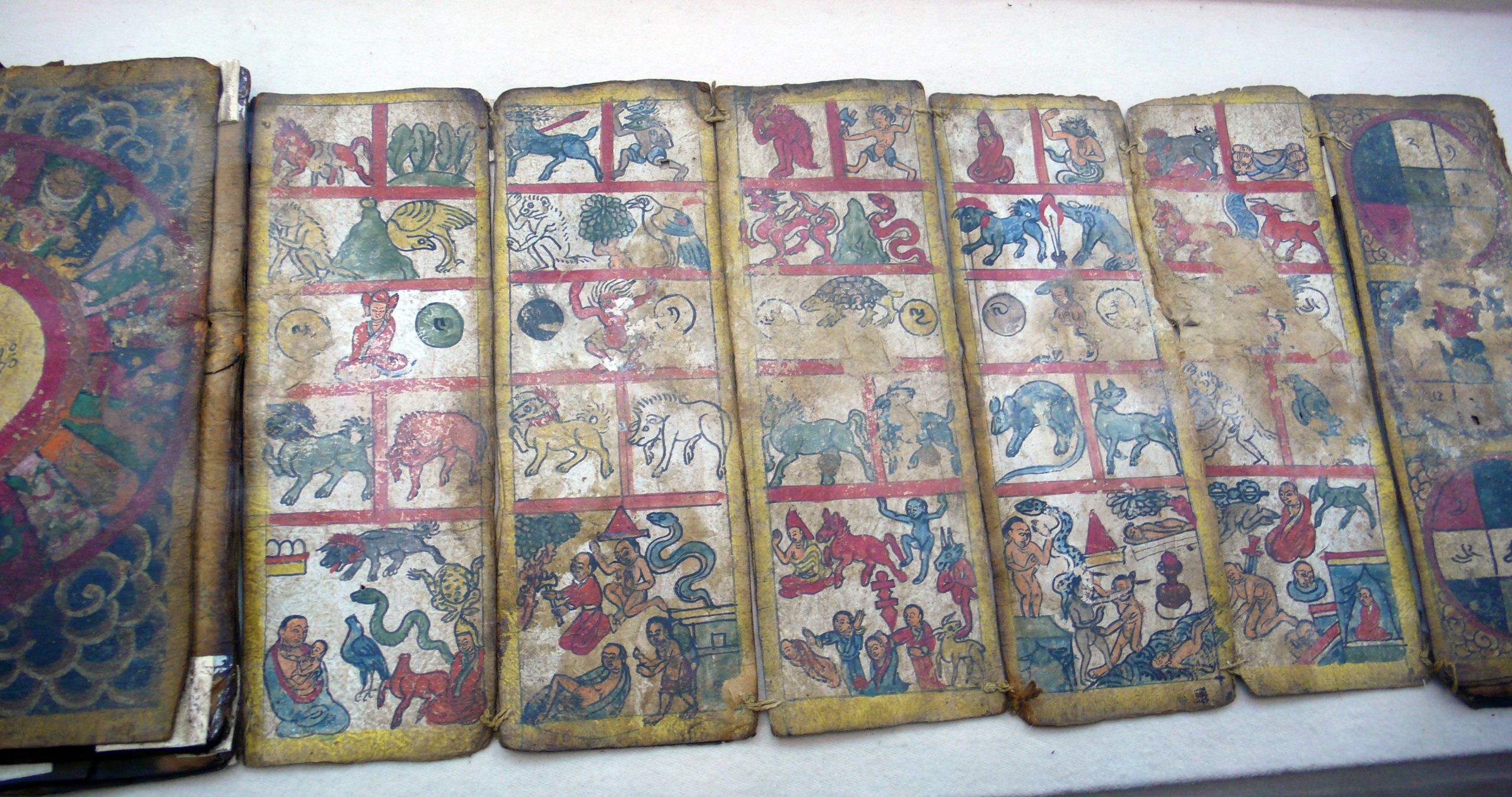
Hong Kong’s newly minted national security police raided the Chinese University of Hong Kong (CUHK) on Friday, confiscating “evidence” that protesting students had broken a draconian national security law imposed on the city by Beijing.
One year after riot police besieged their campus, firing more than 1,000 tear gas rounds at students, national security police were scouring CUHK premises for material to use in evidence after commenting that the recent use of banned protest slogans on campus was likely in breach of the law.
Government broadcaster RTHK said officers took photographs of different parts of the campus and examined what appeared to be signs of graffiti, while journalists following them were told to stay at a distance.
The raid came after a protest on campus by graduating CUHK students, some of whom wore Anonymous masks, who displayed banners and shouted slogans calling for Hong Kong independence, or shouted “Free Hong Kong, revolution now!” from last year’s protest movement.
The police said they had been called in by the CUHK management to investigate, RTHK said.
The ruling Chinese Communist Party (CCP)’s central liaison office in Hong Kong said in a statement on its website that CUHK had “promptly reported” the incident to police, while the school, police and education department had all issued statements condemning the protest.
“We resolutely support the Hong Kong national security agency in taking decisive measures to promptly investigate cases and deal with them according to law,” a spokesperson said in a statement on the office’s official website.
“A university campus is a place for study and the cultivation of talent, and illegal disturbances cannot be allowed,” the statement said, blaming a “small minority” of people for tricking the students into making trouble as part of a “sinister political plot.”
Meanwhile, concerns are growing that the authorities are also targeting “yellow” businesses that supported last year’s protest movement, which demanded full democracy and greater accountability after Hong Kong chief executive Carrie Lam tried to change the law to enable extradition to mainland China.
Pro-democracy shops under pressure
Pro-protest store the Yellow Factory announced it would shut down its two branches after being denounced as trying to foment a “color revolution” in the pro-CCP media.
Its Mong Kok branch had been boarded up when visited by RFA on Thursday, while the Causeway Bay branch was shut, with the Goddess of Democracy still visible from the street.
A “yellow” business owner who gave only the nickname Julian said she had changed the names of a couple of her tea products after the national security law, which criminalizes peaceful dissent and slogans from the protest movement, took effect on July 1.
“I do have some slogans in my shop still, but nothing that violates the national security law,” she said. “But I could be denounced if I or my customers say certain things.”
Yau Tsim Mong District Council vice chairman Yu Tak-po, said the process is similar to that used during the Cultural Revolution (1966-1976) in mainland China.
First, the target is denounced in the media, then people either take heed and fall silent, or the authorities move in with criminal charges, he said.
“It is very likely indeed … [that] yellow businesses will be targeted,” Yu said. “It is already happening; the Ki Lung Tea Restaurant in Prince Edward was raided by 20-40 police officers just a few days ago.”
“We already have a number of indications that they are targeting yellow businesses.”
Rights groups say the vaguely worded law, which threatens anyone criticizing the Chinese or Hong Kong authorities anywhere in the world, will be “devastating” to human rights protections in the city.
Feared Chinese police set up in Hong Kong
It has created specialized secret security agencies, denied fair trial rights, provided sweeping new powers to police, increased restraints on civil society and the media, and weakened judicial oversight, according to a recent report by the New York-based Human Rights Watch (HRW).
The law will also affect the right to education and freedom of information, opinion, and expression in schools, as political statements and discussions are banned from the city’s classrooms, and as books by pro-democracy figures are removed from its public libraries, HRW said.
China’s feared state security police have also set up a headquarters in the city to oversee the law’s implementation and to deal with “serious cases,” while the government has warned that slogans linked to last year’s protest movement, including “Free Hong Kong, Revolution Now!”, will fall within the law’s remit.
Under the terms of the 1997 handover agreement, Hong Kong was promised the maintenance of its traditional freedoms of speech and association, as well as universal suffrage.
But Beijing’s ruling out of fully democratic elections in 2014, its insistence on the prosecution and disqualification of key opposition figures, and its subsequent imposition of the National Security Law following months of popular protests over diminishing freedoms have collapsed the distinction between the city and the rest of mainland China, rights groups and overseas governments say.
The law prompted many nations including Britain, Canada, Australia, Germany, Finland, France, and New Zealand to end their extradition arrangements with Hong Kong.
Meanwhile, China has hit back at the Five Eyes intelligence-sharing alliance after it criticized the disqualification of directly elected lawmakers in Hong Kong.
Chinese foreign ministry spokesman Zhao Lijian warned that the “eyes could be blinded,” if the alliance of Britain, the United States, Canada, Australia and New Zealand “dared harm China’s sovereignty.”
“The Chinese never start trouble, but they aren’t afraid of it either,” Zhao told a regular news briefing in Beijing on Thursday.
Reported by Cheng Yut Yiu for RFA’s Mandarin and Cantonese Services. Translated and edited by Luisetta Mudie.
Source: Copyright © 1998-2016, RFA. Used with the permission of Radio Free Asia, 2025 M St. NW, Suite 300, Washington DC 20036. https://www.rfa.org.












